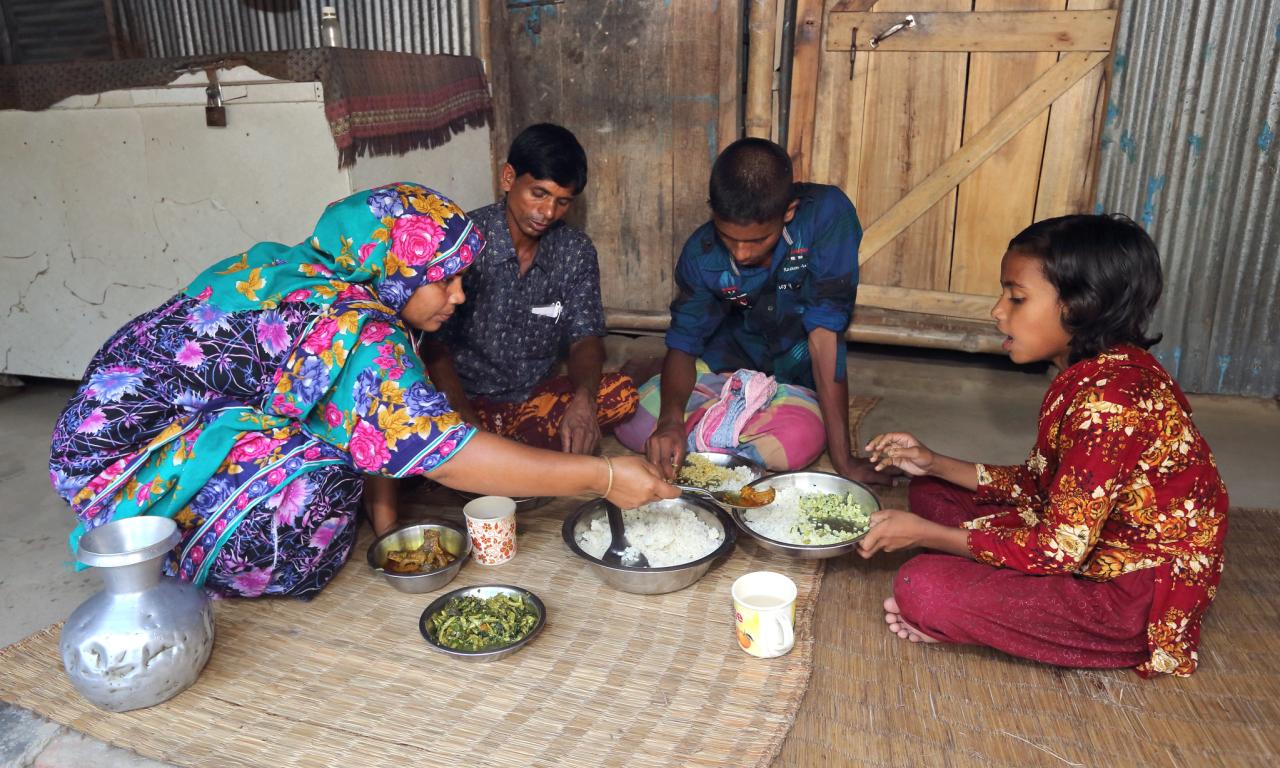
- Shakuntala Thilsted spoke to UN News’ Sachin Gaur about the need to change the current narrative of feeding people to one that is about nourishing populations.
- She shared how food and nutrition security can be achieved through people-centered, nutrition-sensitive approaches.
- She emphasized the need for food transformation systems to include aquatic food systems as well.
In an interview hosted by UN News’ Sachin Gaur, WorldFish’s Global Lead for Nutrition and Public Health Shakuntala Thilsted explained the significant role of aquatic foods in sustainable healthy diets and advocated for their inclusion in national nutrition policies and program interventions to tackle malnutrition.
Aquatic foods — diverse animals, plants and microorganisms grown and harvested from water — are considered superfoods due to their bioavailable micronutrients and essential fatty acids, along with being a major source of protein.
Employing people-centered, nutrition-sensitive approaches
Thilsted relayed how her research focuses on improving the nutrition and health of pregnant and lactating women as well as children in the first 1000 days of life by improving consumption of small indigenous pelagic fish, which led to her winning the 2021 World Food Prize, often referred to as the Nobel Prize for Food and Agriculture.
Her people-centered and nutrition-sensitive approaches have helped shift the traditional narrative of feeding to one that focuses on nourishing a growing population, projected to reach 9 billion by 2050.
Using a nutrition-sensitive approach, the food’s nutritional quality and safety are also taken into consideration apart from the quantity of food one consumes.
She also described how being with the community enabled her to understand the cultural importance and value of fish in Bangladesh, ahead of staple foods such as rice.
“The local women have this saying that when it rains, you will be able to see better. The relation between rain and eyesight puzzled me, and after delving deeper, I realized the connection. When it rains, the rivers, ponds and lakes will fill up, resulting in more fish in these water bodies. With more fish available, fish consumption among the locals also increases, indirectly gaining more vitamins, particularly vitamin A that benefits their eyesight,” she elaborated.
Securing nutrition and livelihoods for people

Thilsted also emphasized the importance of a diversity of foods to achieve sustainable healthy diets. The inclusion of aquatic foods in diets that also contain vegetables and fruits will provide a variety of nutrients vital for cognition, growth and development, health and nutrition of adults.
“When eaten with plant-sourced foods, aquatic foods enhance the absorption of micronutrients from plant-sourced foods,” shared Thilsted.
She further explained how nations would benefit from intergenerational gains if they were to promote the inclusion of aquatic foods in the diets of their people.
“If we can nourish a child from birth through lactating mothers or even before birth through pregnant mothers, we would get intergenerational benefits — a healthy child grows up to be a healthy adult, performs better in school and work, and ultimately contributes to national development,” shared Thilsted.
About 800 million people — mostly poor and vulnerable people in developing countries — depend on aquatic food systems as their most important source of livelihood.
With governments introducing aquatic foods in their national nutrition policies, consumption of aquatic foods will rise. An increase in production to meet growing demand will increase income for those involved in aquatic food systems, especially in rural communities where economic opportunities are far and between. This results in multiple wins for nations — securing the nutrition and livelihoods of their people.
Transforming food systems for healthy people and planet
Advancing the production of staple foods such as rice and maize has been the focus of food systems in the past half-century. Our current food systems are viewed as broken as they do not serve the purpose of producing food for healthy people and planet.
A growing segment of the world population is afflicted with health problems such as obesity, micronutrient deficiency, cardiovascular diseases and diabetes resulting from the diets we consume.
The recent UN Food Systems Summit recognized the need to diversify food systems to include aquatic food systems and named seven priorities for action — one of which was on aquatic foods — in the face of these challenges.
“Fish only make up a small part of aquatic foods. Aquatic foods also include clams and seaweed that have lower carbon footprints compared to terrestrial animal foods such as beef,” shared Thilsted, who is also a UN Food Systems Champion and vice-chair for Action Track 4: Advance Equitable Livelihoods of the 2021 UN Food Systems Summit.
A recent Nature paper assessed the environmental impact of aquatic foods. It concluded that farmed seaweed and bivalves like mussels generate the lowest greenhouse gas emissions, followed by small pelagic capture fisheries like sardines. As such, a shift towards aquatic foods will not only result in a healthier population but also a healthier planet.
Championing aquatic foods on the global stage

In the interview, Thilsted also shared how her association and engagement with several UN organizations have helped shine a spotlight on aquatic foods on the global stage.
She is a co-author of UN Nutrition’s first discussion paper on The role of aquatic foods in sustainable healthy diets. The paper has been instrumental in gathering existing evidence to make formal recommendations on the role of aquatic foods in the global food systems agenda.
Thilsted is also one of fifteen steering committee members of the High-Level Panel of Experts on Food Security and Nutrition (HLPE), a science-policy interface of the UN Committee on World Food Security that facilitates policy debates and informs policymaking by providing independent, comprehensive, and evidence-based analysis and advice. This year, the HLPE released a report on Promoting youth engagement and employment in agriculture and food systems.
She intends to actively shape a new global narrative on the increasing importance of aquatic foods for sustainable food systems transformation towards healthy and resilient diets in her various capacities.
